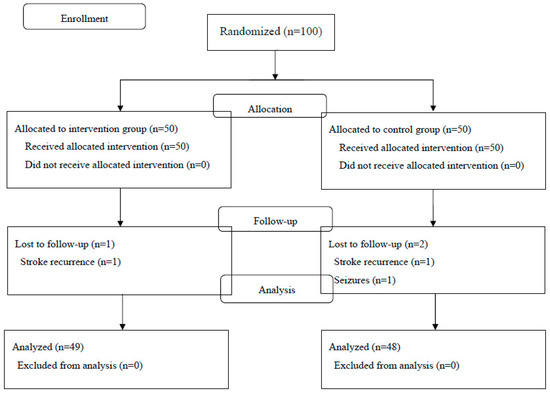They didn't even seem to test for Vitamin D deficiency prior to starting. Bad research.
Vitamin D Supplementation and Post-Stroke Rehabilitation: A Randomized, Double-Blind, Placebo-Controlled Trial
1
Department of Rehabilitation Medicine,
Teikyo University School of Medicine University Hospital, Mizonokuchi,
5-1-1 Futako, Takatsu-ku, Kawasaki, Kanagawa 213-8507, Japan
2
Department of Rehabilitation Medicine,
The Jikei University School of Medicine, 3-25-8, Nishi-Shimbashi,
Minato-Ku, Tokyo 105-8461, Japan
3
Division of Molecular Epidemiology, The
Jikei University School of Medicine, 3-25-8, Nishi-Shimbashi, Minato-Ku,
Tokyo 105-8461, Japan
*
Author to whom correspondence should be addressed.
Nutrients 2019, 11(6), 1295; https://doi.org/10.3390/nu11061295
Received: 20 April 2019 / Revised: 3 June 2019 / Accepted: 6 June 2019 / Published: 7 June 2019
(This article belongs to the Special Issue Vitamin D in Health and the Prevention and Treatment of Disease)
Abstract
Low vitamin D levels are associated with poorer outcomes after stroke. However, it is not clear whether post-stroke vitamin D supplementation can improve these outcomes. In this study, we investigated the effects of vitamin D supplementation on outcomes in hospitalized patients undergoing rehabilitation after acute stroke. A multicenter, randomized, controlled, double-blind, parallel-group trial was conducted from January 2012 through July 2017. One hundred patients admitted to a convalescent rehabilitation ward after having an acute stroke were randomized, and each one received either vitamin D3 (2000 IU/day) or a placebo. The primary outcome was a gain in the Barthel Index scores at week 8. Secondary outcomes were seen in Barthel Index efficiency, hand grip strength, and calf circumference at week 8. Ninety-seven patients completed the study. There were no significant differences in the demographic characteristics between the groups. The mean (±standard deviation) gain in the Barthel Index score was 19.0 ± 14.8 in the supplementation group and 19.5 ± 13.1 in the placebo group (p = 0.88). The Barthel Index efficiency was 0.32 ± 0.31 in the supplementation group and 0.28 ± 0.21 in the placebo group (p = 0.38). There were no between-group differences in the other secondary outcomes. Our findings suggest that oral vitamin D3 supplementation does not improve rehabilitation outcomes after acute stroke. View Full-Text
Keywords:
stroke; vitamin D supplementation; rehabilitation
▼
Figures
This is an open access article distributed under the Creative Commons Attribution License
which permits unrestricted use, distribution, and reproduction in any
medium, provided the original work is properly cited (CC BY 4.0).

 Figure 1
Figure 1
No comments:
Post a Comment